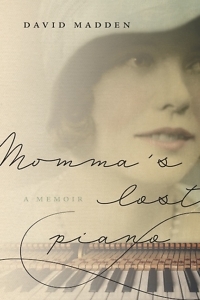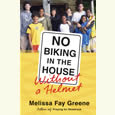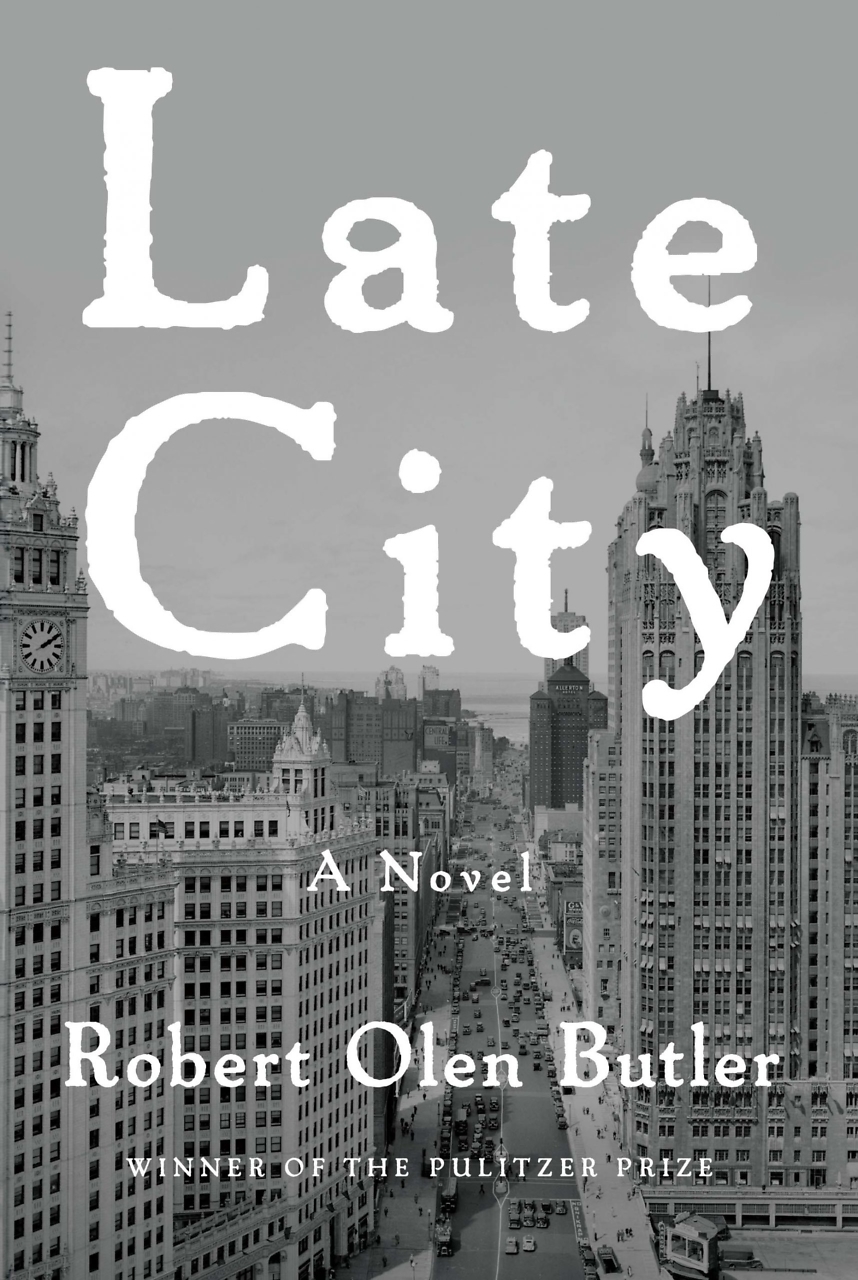I’m From Cleveland
David Madden shines an honest light on his family history
Distinguished man of letters and Knoxville native David Madden adds a family memoir to his impressive roster of publications, which includes novels, literary nonfiction, short stories, essays, poems, and plays. Set mostly in Knoxville, Momma’s Lost Piano tells the story of his long-suffering mother, Emily Merritt Madden, and life’s cruel betrayal of her early expectations.

Writing mainly in the third person, apart from excerpts from Emily’s letters, Madden portrays the events of his family’s life in short vignettes presented out of chronological order. This poses a challenge for the reader, who must attempt to construct a mental timeline to place characters in context and absorb the significance of events.
Madden calls his work an “impressionistic” memoir. He explains, “I wrote whatever came up out of my memory or what I imagined from what I knew about her. Like Momma herself remembering, I moved freely in time and settings, weaving back and forth … Her brief memories and my own are like pictures in a family album ….” What seems at first disjointed, however, gradually emerges into a powerful and suspenseful scene-by-scene portrayal of a troubled working-class family in the mid-20th century South whose problems — failed relationships, low-paying jobs, substandard housing, illness, alcoholism, incarceration, the death of a baby — seem, at times, insurmountable.
The defining moment of Emily’s life occurs in Cleveland, Ohio, when her beloved father makes good on his promise to buy the 18-year-old a piano of her very own. Her joy quickly turns to heartbreak, however, when her father loses his job the very next day and the piano and most of their other possessions are sold so they can move back to Knoxville. It’s a blow that Emily never recovers from. Until her death at age 90, she mourns that “better life elsewhere” — the beautiful house, her many friends, that magical piano — a world that seemed to offer limitless potential, a future filled with music, dancing, romance, and security. All gone in a matter of hours.
 Instead, her life in Knoxville leads to a bad marriage to an alcoholic, with whom she has three children. She loves her boys — Dickie, Jerry (the author’s childhood name), and John — but struggles to raise them mostly by herself in the turbulent 1930s and ‘40s. The family is forced to relocate constantly, as she moves from job to job: seamstress to waitress, drugstore clerk to hostess, cashier to practical nurse. Unable to master shorthand and typing, her dream of becoming a secretary does not materialize. The oldest and youngest boys soon begin a series of forced relocations of their own, from juvenile detention centers to state prisons to federal prisons. No shrinking violet herself, though, Emily goes to bat for them time and again with school officials, police, judges, and even the governor.
Instead, her life in Knoxville leads to a bad marriage to an alcoholic, with whom she has three children. She loves her boys — Dickie, Jerry (the author’s childhood name), and John — but struggles to raise them mostly by herself in the turbulent 1930s and ‘40s. The family is forced to relocate constantly, as she moves from job to job: seamstress to waitress, drugstore clerk to hostess, cashier to practical nurse. Unable to master shorthand and typing, her dream of becoming a secretary does not materialize. The oldest and youngest boys soon begin a series of forced relocations of their own, from juvenile detention centers to state prisons to federal prisons. No shrinking violet herself, though, Emily goes to bat for them time and again with school officials, police, judges, and even the governor.
Another source of pain is a difficult relationship with her mother, who coldly tells Emily, “To be loved, you have to be lovable.” But it is her mother’s gift for storytelling that steers Madden himself toward a life of literacy rather than a life of crime. Inspired by his grandmother’s homespun tales of family history, often including outrageous shenanigans and a different voice for each character, Madden begins to compose his own stories, leading him to become the first person in their family to graduate from high school. And the occasion of her mother’s funeral leaves Emily musing about the course of her own life: “Lovers coming and going. Friends made and lost. Jobs and bosses. Landlords. Insurance collectors showing up each month. Streetcar and bus drivers she had come to know, two or three attractive, but married. Jerry was here a week ago. Dickie was here yesterday, but a fugitive. And God knows where John is.”
Knoxville readers will enjoy the mid-century glimpse of their city and will likely recognize many of the streets and landmarks mentioned. Emily’s future husband dubs her the “It girl” of Gay Street, after the 1927 Clara Bow movie, suggesting young Emily’s beauty and vivacity. Strong and charming when she wants to be, with a bold sense of humor and a determined optimism, Emily maintains her identity throughout the years, even during the worst of times. When Dickie’s son Greg finds his father living in squalor, Emily remarks, “Well, Greg, that’s just life with the Maddens. Don’t ever forget this awfulness, Greg, you found your poor daddy in. Your grandmother’s not from here. I’m from Cleveland.”

Tina Chambers has worked as a technical editor at an engineering firm and as an editorial assistant at Peachtree Publishers, where she worked on books by Erskine Caldwell, Will Campbell, and Ferrol Sams, to name a few. She lives in Chattanooga.


